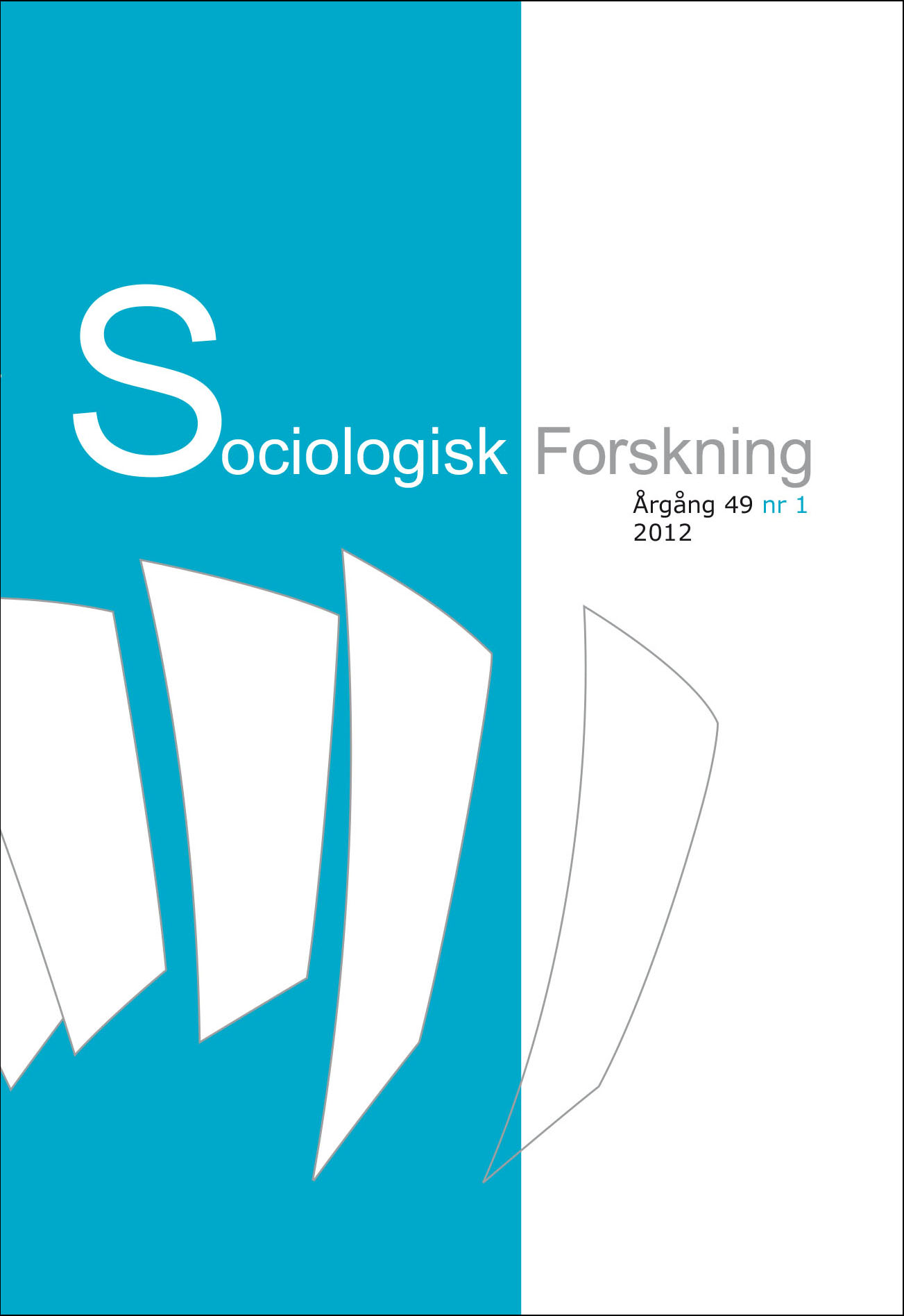Bortom skolframgång
En analys av PISA 2006 ur ett intersektionellt perspektiv
DOI:
https://doi.org/10.37062/sf.49.18391Keywords:
Students performance, PISA, immigration status, multivariate methods, social inequalityAbstract
Beyond school performance An analysis of PISA 2006 from an intersectional perspective
One of the central questions in recent discussions about Swedish schools is which factors that influence school performance. Socio-economic background, gender, ethnicity, country of birth are some aspects that are mentioned in many international and national studies. Sweden is one of the participants in the Programme for International Student Assessment (PISA) and the results of PISA since 2000 show deteriorated results for Sweden in reading performance, mathematics and science among 15-year-old students. In order to set school performance in a broader context we analyzed data for the Swedish part of PISA 2006, in which 57 countries participated (of which 30 OECD-countries), with multivariate methods from an intersectional perspective. Our analysis of PISA 2006 shows a complexity of different social, economic and cultural factors behind students’ school performance. This intersectional result is also strengthened by the results from PISA 2009, not analysed here. Further, our results show that students’ school performance vary with immigration status but that this variation increases by the factor of social inequality in the Swedish society.
Downloads
Published
How to Cite
Issue
Section
License
All content in Sociologisk Forskning is published with immediate open access, under the Creative Commons license CC BY-NC-ND 4.0.
All content may be read, downloaded, shared and printed for non-commercial purposes, free and without fees. Contents may not be altered. When content is reused, author, source and a link to the copyright licence must be provided. The author retains copyright to their content. No publication fees are charged.





